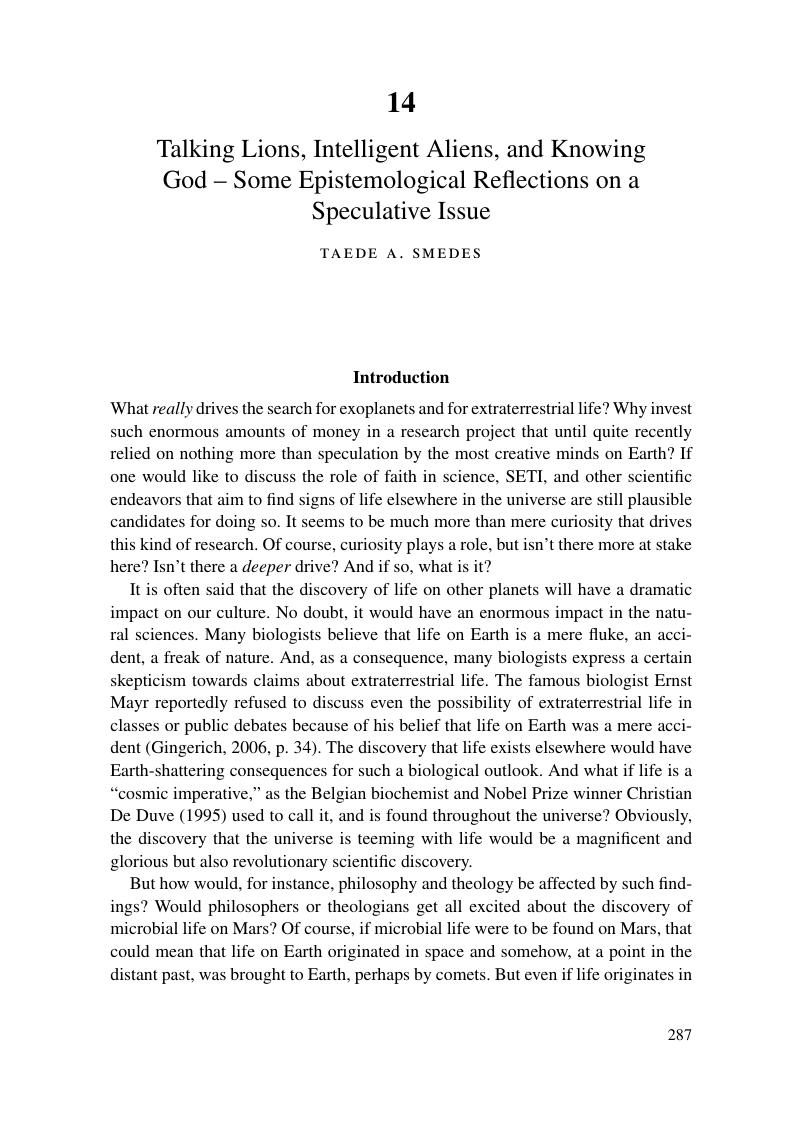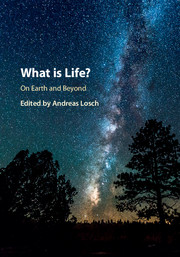Book contents
- What is Life? On Earth and Beyond
- Additional material
- What is Life? On Earth and Beyond
- Copyright page
- Dedication
- Contents
- Contributors
- Preface
- Introduction
- Science
- Philosophy
- Theology
- 10 What Theology can Contribute to the Question “What is Life?”
- 11 Autopoietic Systems and the Theology of Creation: On the Nature of Life
- 12 Where There's Life There's Intelligence
- 13 Life in the Universe, Incarnation and Salvation: A Conversation between Christianity and the Scientific Possibilities of Extra Terrestrial Life
- 14 Talking Lions, Intelligent Aliens, and Knowing God – Some Epistemological Reflections on a Speculative Issue
- Conclusion
- Index
- References
14 - Talking Lions, Intelligent Aliens, and Knowing God – Some Epistemological Reflections on a Speculative Issue
from Theology
Published online by Cambridge University Press: 08 July 2017
- What is Life? On Earth and Beyond
- Additional material
- What is Life? On Earth and Beyond
- Copyright page
- Dedication
- Contents
- Contributors
- Preface
- Introduction
- Science
- Philosophy
- Theology
- 10 What Theology can Contribute to the Question “What is Life?”
- 11 Autopoietic Systems and the Theology of Creation: On the Nature of Life
- 12 Where There's Life There's Intelligence
- 13 Life in the Universe, Incarnation and Salvation: A Conversation between Christianity and the Scientific Possibilities of Extra Terrestrial Life
- 14 Talking Lions, Intelligent Aliens, and Knowing God – Some Epistemological Reflections on a Speculative Issue
- Conclusion
- Index
- References
Summary

- Type
- Chapter
- Information
- What is Life? On Earth and Beyond , pp. 287 - 300Publisher: Cambridge University PressPrint publication year: 2017

